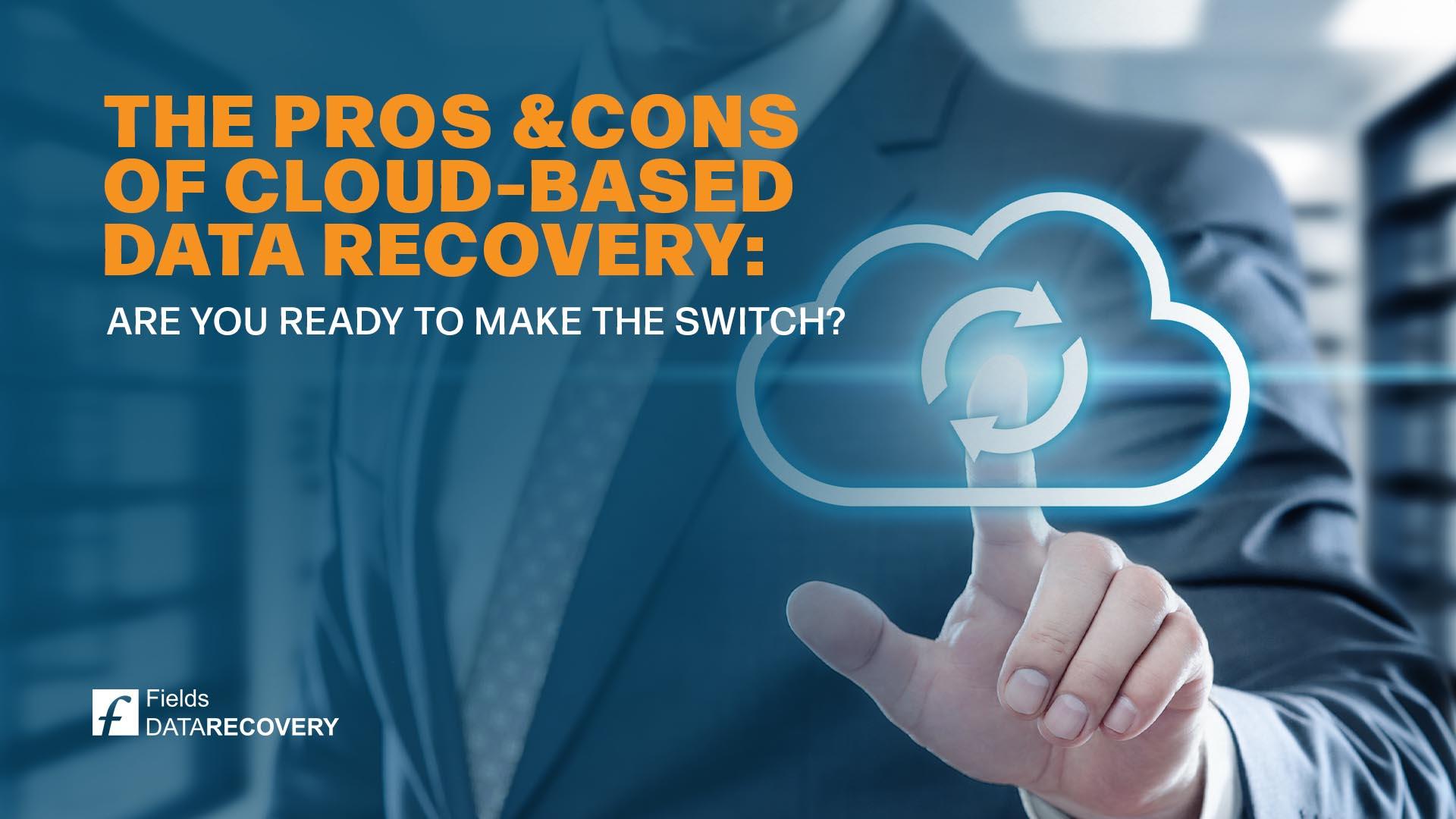The Pros and Cons of Cloud-Based Data Recovery: Are you Ready to Make the Switch?

As technology advances, the way businesses handle their data changes as well. Data recovery solutions have never been more important than they are today. And with the rise of cloud-based solutions, more and more businesses are opting for them. However, as with anything in life, there are pros and cons to consider before making the switch. In this blog post, we will discuss the benefits and potential downsides of cloud-based data recovery.
1. The Pros
There are plenty of benefits to cloud-based data recovery. First and foremost, it is incredibly convenient. With data stored in a cloud-based system, businesses can access it from anywhere, anytime. This means that even if your office building gets flooded or damaged by fire, your data is safe and can be accessed from another location. Additionally, cloud-based data recovery solutions offer automatic backup and restore features, meaning you can rest easy knowing that all your important data is being backed up automatically and regularly.
2. The Cons
On the other hand, there are some downsides to cloud-based data recovery. One of the biggest concerns is data privacy and security. Since your data is stored in a third-party server, there is always the possibility of it being hacked or accessed by unauthorised individuals. That's why it's essential to choose a reputable provider with top-notch security measures. Another downside is the potential for downtime or slow speeds due to internet connectivity issues. If your internet connection goes down, you may not be able to access your data when you need it.
3. The Cost
Another important factor to consider when contemplating cloud-based data recovery is the cost. While these solutions can be incredibly convenient, they can also come with a hefty price tag. Depending on your business size and the amount of data you need to store, the cost can quickly add up. Additionally, some providers may charge additional fees for services such as data migration or support.
4. Your Business Needs
Before making the switch to cloud-based data recovery, it's important to assess your business needs. Consider the nature of your business and how much data you need to store. If you're a small business with limited data storage needs, cloud-based solutions may not be necessary. However, if you're a large enterprise with a vast amount of data to store, cloud-based data recovery solutions could be the ideal choice for you.
5. Choosing the Right Provider
Choosing the right provider for your cloud-based data recovery needs is crucial. Consider factors such as security measures, cost, and the provider's reputation. Do your research and read reviews from other businesses to ensure that you're getting the best possible service. Additionally, it's essential to consider the provider's customer service and willingness to work with you to tailor the solution to your business needs.
Conclusion:
In conclusion, cloud-based data recovery solutions can be a great option for businesses of all sizes. However, it's essential to weigh the pros and cons and consider your business needs before making the switch. Whether you choose a cloud-based solution or opt for a traditional on-premises set-up, data recovery is a critical component of any business. So, take the time to assess your needs, choose the right provider, and rest easy knowing that your data is safe and secure.
Do you have storage device with valuable data you can no longer access? Contact Fields Data Recovery at 0800 083 7891 so our skilled technicians can get to work saving your data.
